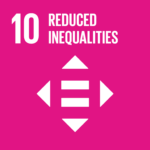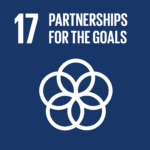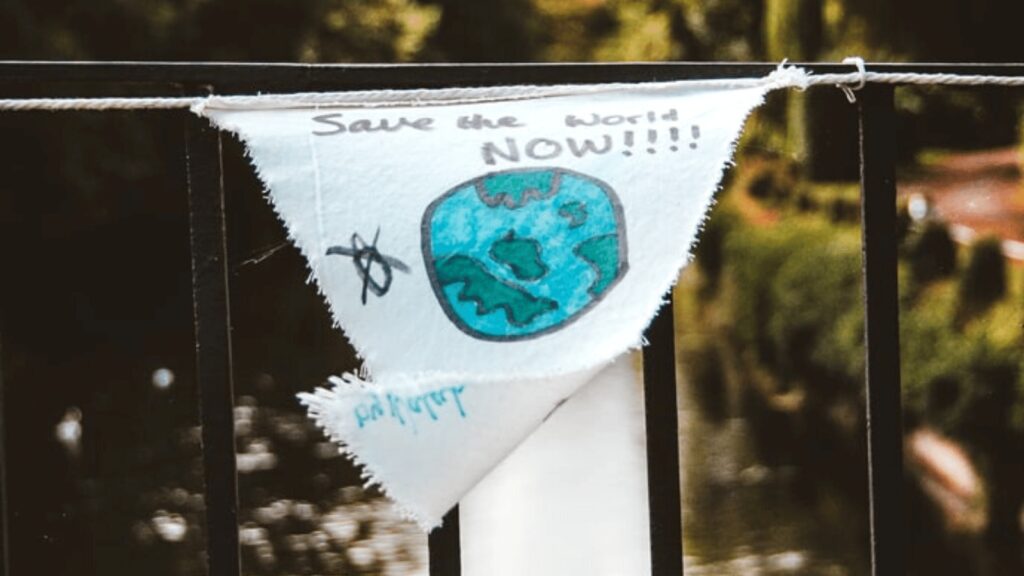Getting involved in just and sustainable futures is one of the most effective ways to fight climate-anxiety !
As wildfires raze rainforests in Borneo as well as around Amazon, and sea ice dwindles, the role of humans in climate change becomes impossible to ignore. We must all understand the following twenty terms and concepts to achieve climate justice.
RELEVANT SUSTAINABLE GOALS



Front-line communities
Community on the front lines of a climate crisis, the ones who feel the worst effects of climate change and the climate emergency. It’s mostly low-income and minority communities, whose neighbors don’t often have basic infrastructure and who will be increasingly vulnerable as our climate deteriorates.
Land Defenders
Whether or not they view themselves as such, individuals and groups who are fighting to protect their lands, their water supplies, a healthy living environment, and the self-determination of their communities are land and environment defenders. Included in our definition are those who contribute to such efforts through reporting or accompanying these struggles, for example by providing technical or legal support.
BIPOC – Black, Indigenous, and other people of color
BIPOC stands for “Black, Indigenous, and People of Color,” is person-first language. It enables a shift away from terms like “marginalized” and “minority.” While these terms might remain factually correct, this term lacks a sense of humanity, since there’s no clear indication they refer to people.
BIPOC can draw attention to the injustices faced by specific groups of people. But it’s important to remember they can also lump together different life experiences and erase uniqueness.
Water Defenders
Commonly called “water protectors are activists, organizers, and cultural workers focused on the defense of the world’s water and water systems.
Activist Burnout
A phenomenon that occurs when a political or social activist feels overwhelmed, frustrated, hopeless, or depressed, usually after a period of extensive activism.
Climate Doomism
Climate doomers believe that there isn’t much of a reason to care about the climate crisis since we’re too late and nothing can be done to mitigate or adapt. ‘Climate dormers’
Ecofascism
Defined by environmental historian Michael E. Zimmerman, Ecofascism is a totalitarian government that requires individuals to sacrifice their interests to the well-being of the ‘land’, understood as the splendid web of life, or the organic whole of nature, including peoples and their states.
A popular depiction of ecofascism can be seen with the Marvel character, Thanos – When he vows to wipe out half of all life forms in the universe, he addresses it as the “tragedy of the commons”, a dilemma in which individuals will eventually over consume public resources to the point of collapse in its entirety.
Eco-ableism
Eco-ableism can be defined as a form of discrimination toward individuals with disabilities through an ecological and environmental lens (Wolbring et al., 2017). Eco ableism is discrimination towards people with disabilities that happens in environmental activism. It happens because non-disabled environmental activists fail to understand that their solutions might make some people with disabilities face difficulties
Monoculture
Simply put, the cultivation or growth of a single crop or organism especially on agricultural or forest land. Monoculture is widely used in intensive farming and in organic farming: both a 1,000-acre cornfield and a 10-hectare field of organic kale are monocultures. Monoculture crops have allowed farmers to increase efficiency in planting, managing, and harvesting, mainly by facilitating the use of machinery in these operations, but monocultures can also increase the risk of diseases or pest outbreaks. Diversity can be added both in time, as with a crop rotation or sequence, or in space, with a polyculture or intercropping
Permaculture
Permaculture is an innovative framework for creating sustainable ways of living. It is a practical method of developing ecologically harmonious, efficient and productive systems that can be used by anyone, anywhere.
By thinking carefully about the way we use our resources – food, energy, shelter and other material and non-material needs – it is possible to get much more out of life by using less. We can be more productive for less effort, reaping benefits for our environment and ourselves, for now and for generations to come.
This is the essence of permaculture – the design of an ecologically sound way of living – in our households, gardens, communities and businesses. It is created by cooperating with nature and caring for the earth and its people. Permaculture is not exclusive – its principles and practice can be used by anyone, anywhere.
Intersectional Environmentalism
The term intersectional environmentalism was defined by black climate activist Leah Thomas in the height of the ongoing Black Lives Matter movement following the murder of George Floyd. According to Leah Thomas :
“Intersectional Environmentalism is an inclusive version of environmentalism that advocates for both the protection of people and the planet. It identifies the ways in which injustices happening to marginalised communities and the earth are interconnected. It brings injustices done to the most vulnerable communities, and the earth, to the forefront and does not minimise or silence social inequality. Intersectional environmentalism advocates for justice for people and the planet”
Leah Thomas, Climate Activist
Environmental Justice
Environmental justice is the fair treatment and meaningful involvement of all people, regardless of race, color, national origin, or income, with respect to the development, implementation, and enforcement of environmental laws, regulations, and policies. Fair treatment means that no population bears a disproportionate share of negative environmental consequences resulting from industrial, municipal, and commercial operations or from the execution of federal, state, and local laws; regulations; and policies. Meaningful involvement requires effective access to decision makers for all, and the ability in all communities to make informed decisions and take positive actions to produce environmental justice for themselves.
Grassroots
Passionate people working together in a community to address injustices on a local, national, or international level.
Ecofeminism
An easy way to explain ecofeminism is to define it as a meeting between gender and ecology – “nature is a feminist issue”. Ecofeminism is a branch of feminism concerned with critically analysing and understanding the relationship between gender and the environment.
Like other branches of feminism, ecofeminists seek equality between all genders in society. Additionally, Ecofeminism critically examines and analyses the relationship between gender and our environment. When thinking about the key principle of Ecofeminism, political scientists have suggested the statement below could be considered an ‘informal slogan’ for ecofeminists:
Civic Action
Civic action can be defined as a form of citizenship practice consisting in mainly collective initiatives; enabling people to make sure legislators hear their voices; to building knowledge on important issues and take action through campaigns to change the behavior of public and private institutions; to citizens becoming more active members in their community.
Environmental Liberation
As defined by Destiny Hodges, founder of Generation Green, environmental liberation is a connection of environmental justice and Black liberation. It’s the idea that “environmental justice, climate justice, and Black liberation can only be achieved together, and that Black liberation is liberation for everyone.”
“In order to be a part of the environmental liberation movement, you must be antiracist, even anti-capitalist, and an abolitionist, because these systems can no longer exist [if we want to achieve environmental liberation]. It’s not a question of justice, it’s a question of freedom, of liberation, and what does our future look like?” Hodges explains.
Radical Imagination
At its most superficial, the radical imagination is the ability to imagine the world, life, and social institutions not as they are but as they might otherwise be. It is the courage and the intelligence to recognize that the world can and should be changed. The radical imagination is not just about dreaming of different futures. It’s about bringing those possibilities back from the future to work on the present, to inspire action and new forms of solidarity today.
Pleasure Activism
The term “pleasure activism” is relatively new. Coined byAdrienne Maree Brown, pleasure activism invites pleasure and joy as tools of personal liberation that make it possible to sustainably organise against oppression and injustice.
Biodiversity
Biodiversity is a term used to describe the enormous variety of life on Earth. It can be used more specifically to refer to all of the species in one region or ecosystem. Biodiversity refers to every living thing, including plants, bacteria, animals, and humans. Scientists have estimated that there are around 8.7 million species of plants and animals in existence. However, only around 1.2 million species have been identified and described so far, most of which are insects. This means that millions of other organisms remain a complete mystery.
Climate Refugee
Human displacement that caused directly by extreme weather events such as flooding, hurricanes and droughts, but also due to secondary events driven by climate instability like conflict, economic failure and political unrest. Estimates vary but it has been suggested there may be 200 million climate migrants by 2050. this phenomenon is already disproportionately affects vulnerable areas in the Global South. Between 2008 and 2015, the UNHCR estimates climate related events displaced 22.5 million people.
Climate Racism
This term is used to describe environmental injustice that occurs within a racialized context both in practice and policy. In the context of the United States, environmental racism often emphasizes the inequalities between urban and exurban areas after white flight.
You may also be interested in :
Joining The Wave Of Action To Restore Our Oceans : What A Person Can do


